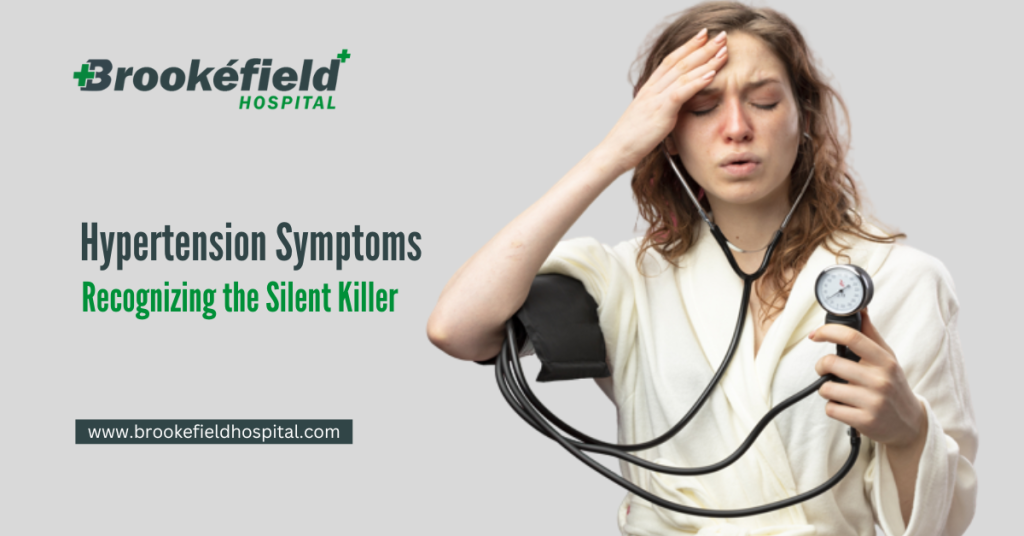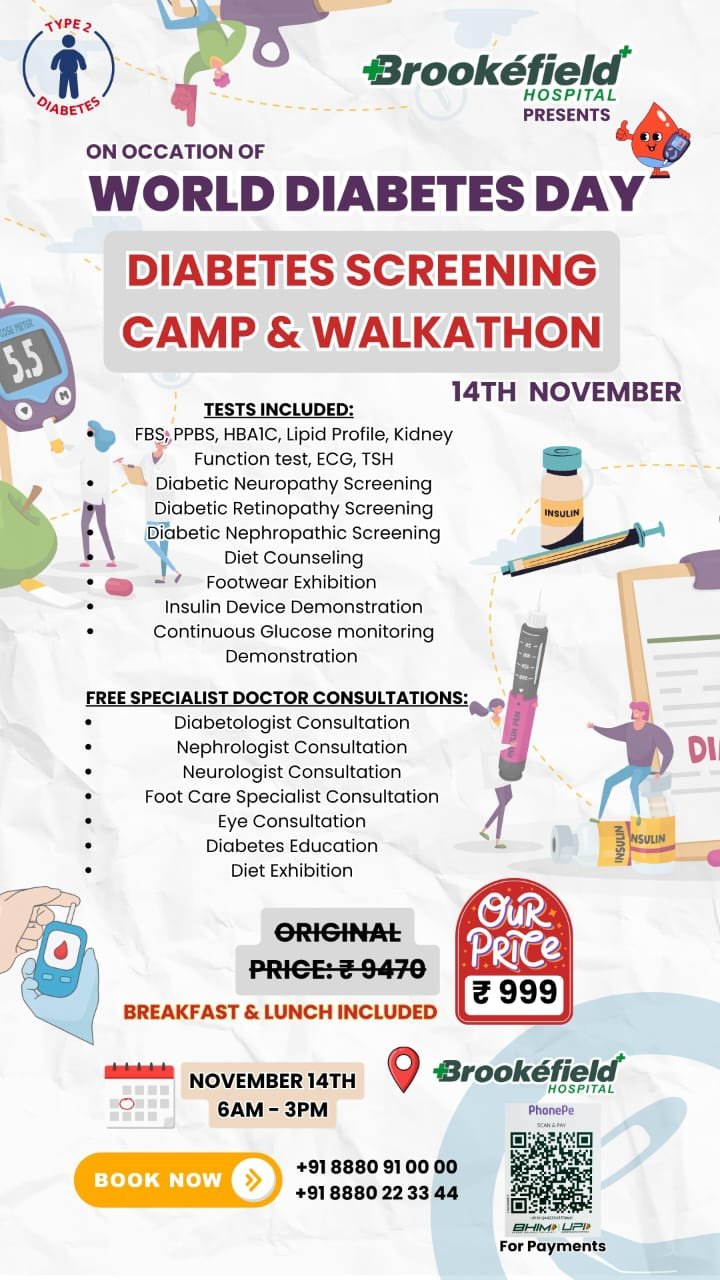Hypertension Symptoms: Hypertension, also known as high blood pressure, affects millions of people worldwide. Often referred to as the “silent killer,” hypertension often goes unnoticed until it leads to severe health complications. Understanding the symptoms of hypertension is crucial for early detection and effective management.
In this article, we will explore the various symptoms associated with hypertension and discuss how to recognize them. Whether you have been diagnosed with hypertension or are concerned about your blood pressure levels, this comprehensive guide will provide you with the information you need to take control of your health.
What Are The Hypertension Symptoms?
Hypertension symptoms can vary from person to person, and in some cases, individuals may not experience any noticeable signs. However, there are common symptoms that may indicate the presence of hypertension. It’s important to be aware of these symptoms and seek medical attention if you suspect you may have high blood pressure.
The following are some of the most prevalent hypertension symptoms:
- Headaches: Persistent headaches, especially at the back of the head, can be an early warning sign of hypertension.
- Dizziness and lightheadedness: Feeling dizzy or lightheaded, particularly when standing up quickly, can be a symptom of high blood pressure.
- Blurred vision: Hypertension can affect blood vessels in the eyes, leading to blurred vision or difficulty focusing.
- Chest pain: In some cases, individuals with hypertension may experience chest pain, which can be a sign of an underlying heart problem.
- Shortness of breath: Hypertension can cause fluid retention in the lungs, resulting in difficulty breathing or shortness of breath.
- Fatigue: Feeling tired or fatigued, even after adequate rest, can be a symptom of hypertension.
- Irregular heartbeat: Hypertension can disrupt the normal rhythm of the heart, leading to palpitations or an irregular heartbeat.
- Anxiety and irritability: Hypertension can contribute to feelings of anxiety and irritability due to increased strain on the cardiovascular system.
- Swelling: Hypertension can cause fluid retention, leading to swelling in the hands, feet, or ankles.
- Difficulty concentrating: High blood pressure can affect cognitive function, resulting in difficulty concentrating or memory problems.
- Sleep disturbances: Hypertension may contribute to sleep disturbances, such as insomnia or frequent nighttime waking.
- Frequent urination: Increased urination frequency, especially during the night, can be a symptom of hypertension.
- Weight gain: Unexplained weight gain or difficulty losing weight can be associated with hypertension.
Choose Brookefield Hospital (Best Super Speciality Hospital in Bangalore) For Hypertension Treatment.
If you’re looking for hypertension treatment in Bangalore, I can provide you with information about Brookefield Hospital, which is considered one of the best super-specialty hospitals in the city.
Brookefield Hospital, located in Bangalore, is known for its comprehensive medical services and state-of-the-art facilities. They have a dedicated team of experienced doctors, specialists, and support staff who specialize in the treatment of hypertension.
Here are some reasons why Brookefield Hospital is a preferred choice for hypertension treatment:
Expertise: The hospital has a team of highly skilled and experienced doctors who are well-versed in diagnosing and treating hypertension. They stay updated with the latest advancements in the field and follow evidence-based practices to ensure effective treatment.
Advanced Diagnostic Facilities: The hospital is equipped with advanced diagnostic facilities to accurately diagnose hypertension and identify any underlying causes or complications. They utilize modern equipment and technology to conduct tests such as blood pressure monitoring, echocardiography, stress tests, and lab investigations.
Treatment Options: Brookefield Hospital provides a wide range of treatment options for hypertension, including medication management, lifestyle modifications, dietary counseling, and stress management techniques. They focus on controlling blood pressure levels and reducing the risk of complications associated with hypertension.
Patient-Centric Approach: The hospital prioritizes patient comfort and satisfaction. They strive to create a supportive and caring environment where patients feel heard and involved in their treatment decisions. The staff at Brookfield Hospital is known for their compassionate care and dedication to patient well-being.
It’s important to note that while Brookefield Hospital is recognized as a top super-specialty hospital for hypertension treatment in Bangalore, it’s always advisable to consult with a healthcare professional directly to discuss your specific condition and treatment options.
Please contact Brookefield Hospital directly for more information, to schedule an appointment, or to inquire about their hypertension treatment services.
FAQ: Hypertension Symptoms
1. How common are hypertension symptoms?
Hypertension symptoms can vary in frequency and intensity among individuals. Some people may experience several symptoms, while others may have none. It’s important to note that hypertension is often asymptomatic, making regular blood pressure screenings crucial.
2. Can stress cause hypertension symptoms?
Stress can contribute to elevated blood pressure levels, but it is not the sole cause of hypertension. Other factors such as genetics, age, lifestyle, and underlying health conditions play a significant role in the development of hypertension.
3. Are hypertension symptoms the same for everyone?
Hypertension symptoms can vary from person to person. Some individuals may experience specific symptoms, while others may not exhibit any noticeable signs. It’s essential to monitor your blood pressure regularly, especially if you have risk factors for hypertension.
4. How can I manage hypertension symptoms?
Managing hypertension symptoms involves adopting a healthy lifestyle. This includes following a balanced diet, engaging in regular physical activity, maintaining a healthy weight, managing stress levels, limiting alcohol consumption, and avoiding tobacco products. Additionally, medication may be prescribed by a healthcare professional to control blood pressure.
5. Can hypertension symptoms be reversed?
While hypertension itself cannot be reversed, its symptoms and effects can be managed effectively through lifestyle modifications and medical interventions. It’s crucial to work closely with your healthcare provider to develop an individualized treatment plan.
Conclusion
Recognizing the symptoms of hypertension is essential for early detection and effective management. By familiarizing yourself with the signs outlined in this article and seeking medical attention when necessary, you can take proactive steps to protect your health. Remember, regular blood pressure screenings and adopting a healthy lifestyle are key to managing hypertension and reducing the risk of complications. Stay informed, prioritize your well-being, and work closely with your healthcare provider to achieve optimal blood pressure control.
Also Read:




